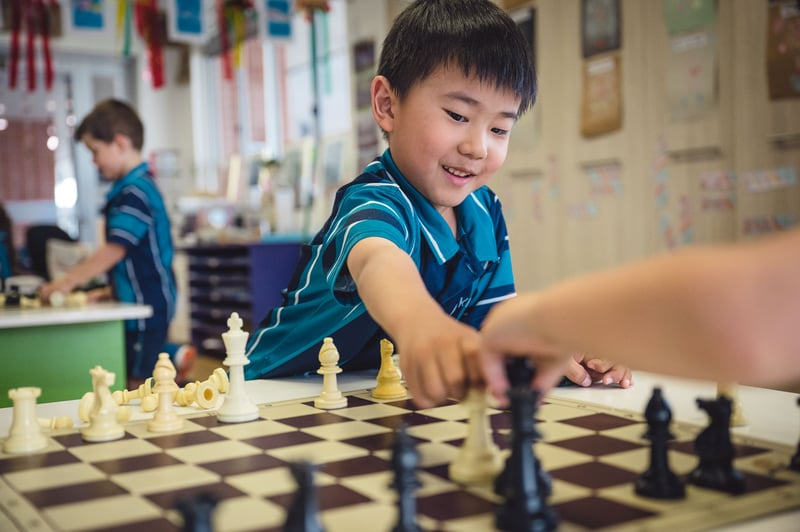
In the world of chess, the journey from novice to master is filled with challenges and learning opportunities. With the rise of digital technology, online group chess courses have become an effective way for players of all ages and skill levels to enhance their game. These courses provide a unique blend of camaraderie, competition, and expert instruction that can significantly improve your learning process. This article explores how participating in group online chess courses can enhance your skills, foster community engagement, and create a more enjoyable learning experience.
1. Collaborative Learning Environment
One of the primary benefits of online group chess courses is the collaborative learning environment they foster. In a group setting, participants can share ideas, strategies, and experiences, which enriches the overall learning experience. This interaction allows players to learn from one another and gain insights that they may not have encountered in solitary study or one-on-one lessons. The exchange of knowledge among peers can lead to deeper understanding and retention of chess concepts.
2. Enhanced Motivation and Accountability
Learning chess in a group setting can significantly boost motivation levels. The presence of fellow learners creates a supportive atmosphere where participants encourage each other to improve. This process helps maintain enthusiasm for the game, especially during challenging phases of learning. Additionally, knowing that others are counting on you to attend sessions and participate actively fosters accountability, prompting individuals to practice more consistently and engage fully in their studies.
3. Access to Expert Instruction
Online group chess courses often feature experienced instructors who provide valuable insights and guidance throughout the learning process. These instructors typically have extensive backgrounds in chess theory and practical play, allowing them to offer tailored advice that addresses common challenges faced by learners. The ability to ask questions in real-time during group sessions enables participants to clarify doubts immediately and gain a better grasp of complex strategies.
4. Diverse Perspectives on Strategy
In a group setting, participants come from various backgrounds with different playing styles and approaches to the game. This diversity allows learners to be exposed to multiple perspectives on strategy and tactics. Observing how peers approach specific positions or problems can inspire new ideas and techniques that individuals might not have considered otherwise. This exposure broadens players’ understanding of the game and encourages them to think critically about their own strategies.
5. Structured Learning Path
Many online group chess courses are designed with a structured curriculum that guides participants through different aspects of the game systematically. This organized approach ensures that learners build a solid foundation before moving on to more advanced concepts. Structured courses often include lessons on openings, middle-game tactics, endgame strategies, and psychological aspects of play, providing a comprehensive education that covers all essential areas.
6. Real-Time Practice Opportunities
Group classes often incorporate real-time practice games where participants can apply what they’ve learned during lessons. Playing against peers in a controlled environment allows learners to test their skills without the pressure of formal competition. These practice sessions help reinforce theoretical knowledge while also providing immediate feedback from both instructors and fellow students, which is invaluable for improvement.
7. Competitive Spirit
The competitive nature of group chess courses can motivate participants to strive for excellence. Engaging in friendly competitions or tournaments within the group encourages players to push their limits and improve their skills continuously. This competitive spirit not only makes learning more exciting but also helps develop resilience—a crucial trait for any successful chess player.
8. Flexible Learning Options
Online group chess courses offer flexibility that traditional in-person classes may lack. Participants can join sessions from anywhere with an internet connection, making it easier for individuals with busy schedules or those living in remote areas to access quality instruction. Many platforms also provide recorded sessions for later viewing, allowing students to revisit lessons at their convenience.
9. Building a Chess Community
Joining an online group chess course connects participants with like-minded individuals who share a passion for the game. This sense of community fosters friendships that extend beyond the virtual classroom, creating opportunities for social interaction through shared interests in chess-related activities such as tournaments or casual games outside of class hours. Building these connections enhances the overall experience and makes learning more enjoyable.
10. Cost-Effectiveness
Online group chess classes are often more affordable than private lessons or one-on-one coaching sessions. By sharing costs among multiple participants, students can access high-quality instruction at a fraction of the price they would pay for individual coaching. This cost-effectiveness makes it easier for learners at all levels—especially beginners—to invest in their chess education without breaking the bank.
In summary, online group chess courses offer numerous benefits that enhance the learning process for players at all skill levels. The structured curriculum combined with real-time practice opportunities allows participants to develop their skills systematically while enjoying the camaraderie of fellow learners. Moreover, the flexibility and affordability of online courses make them accessible to a broader audience eager to explore the fascinating world of chess.





